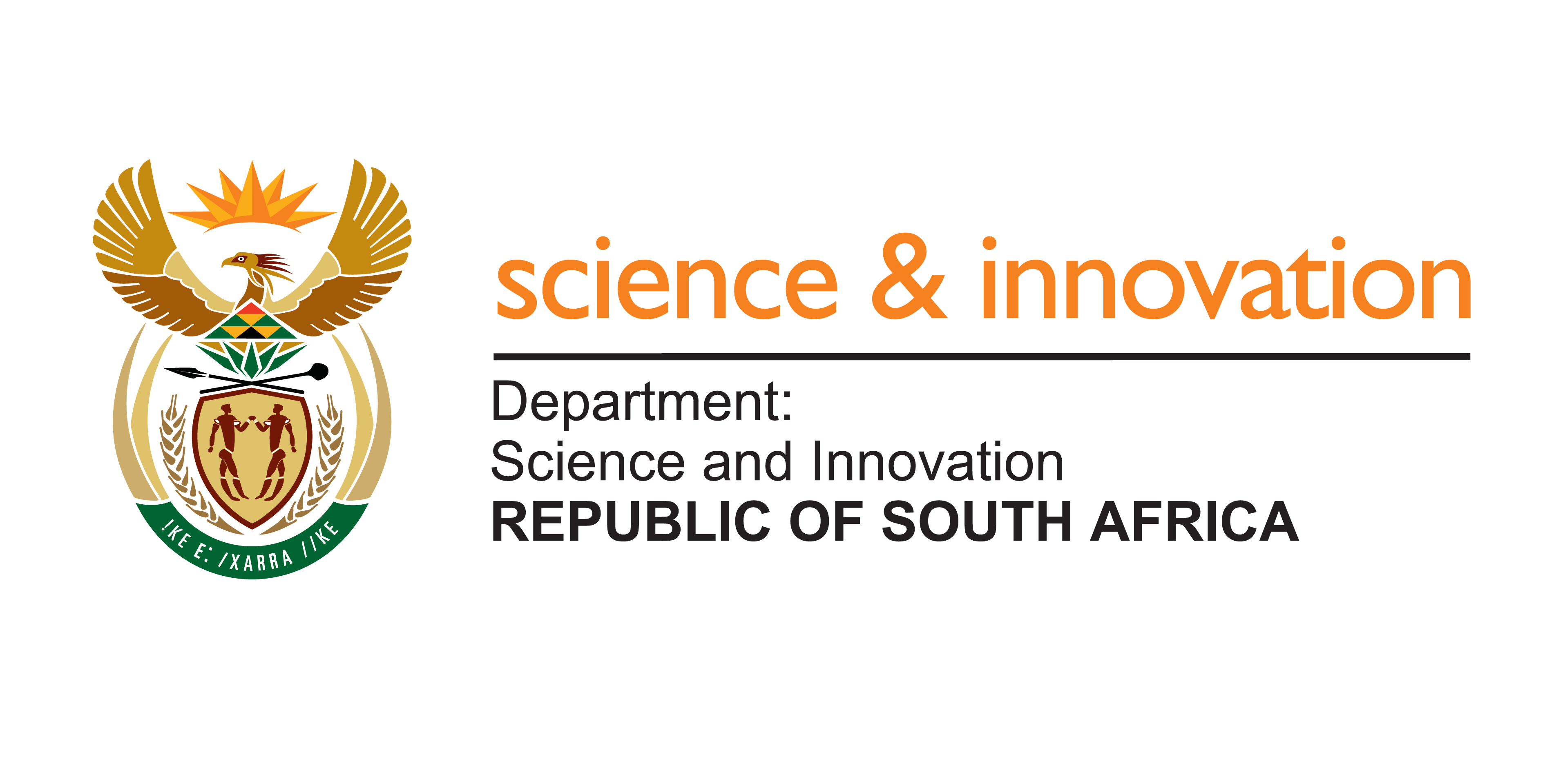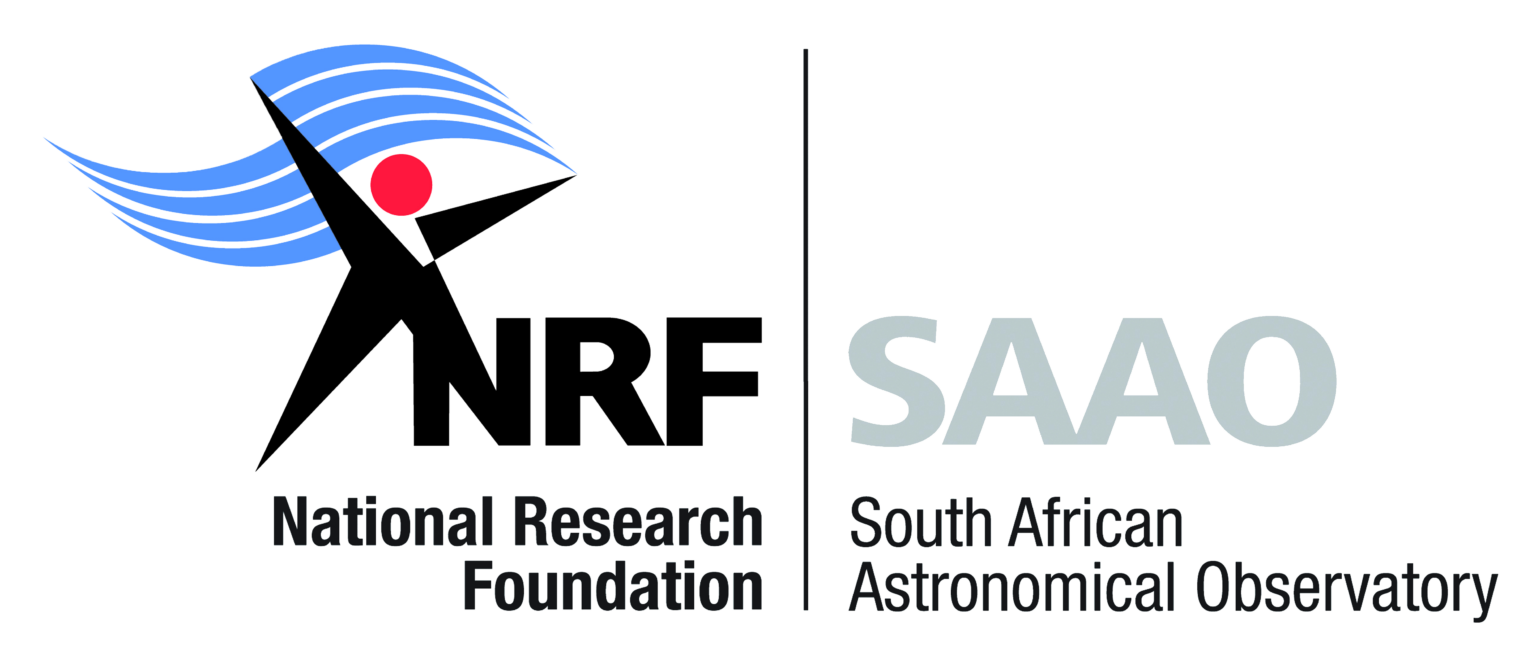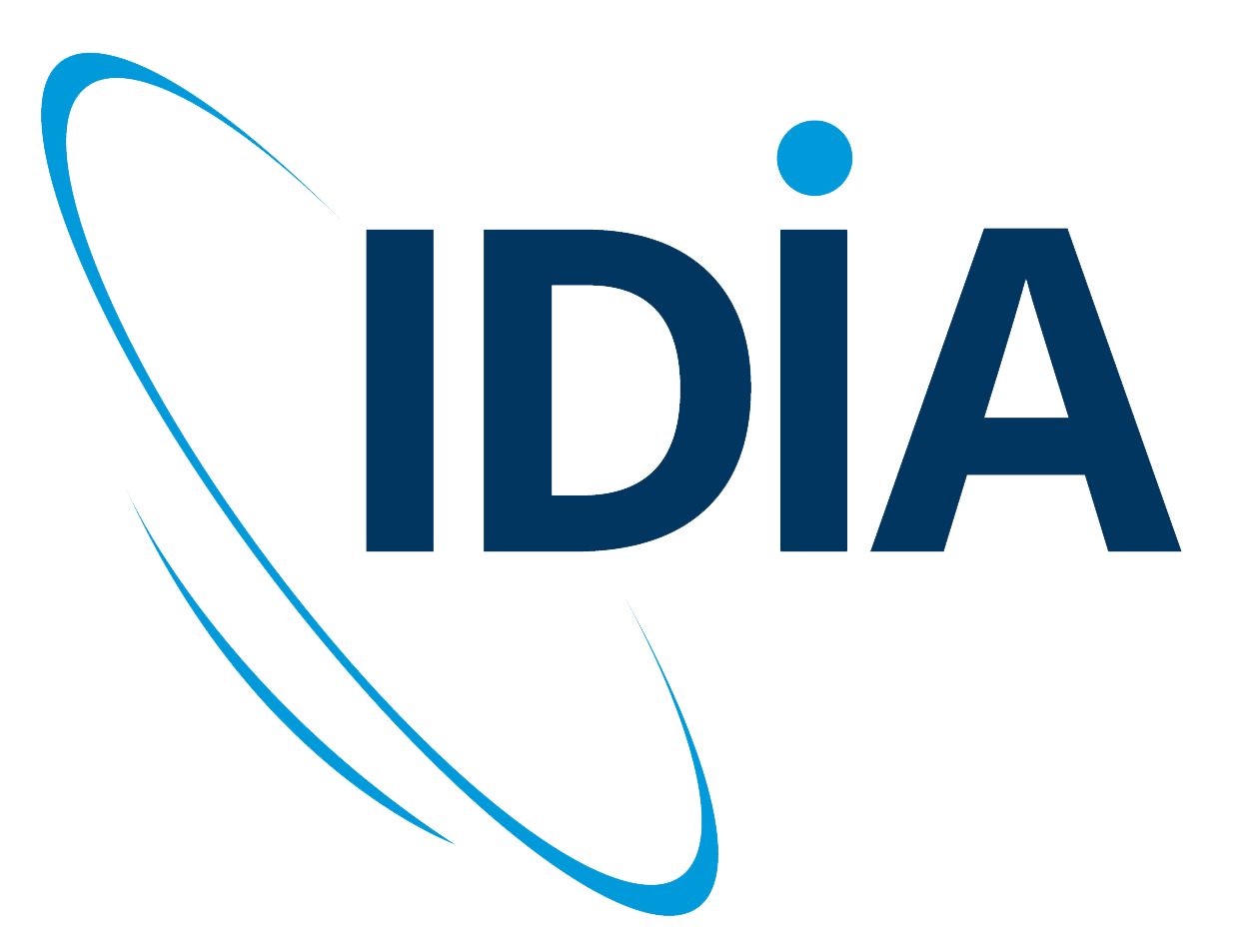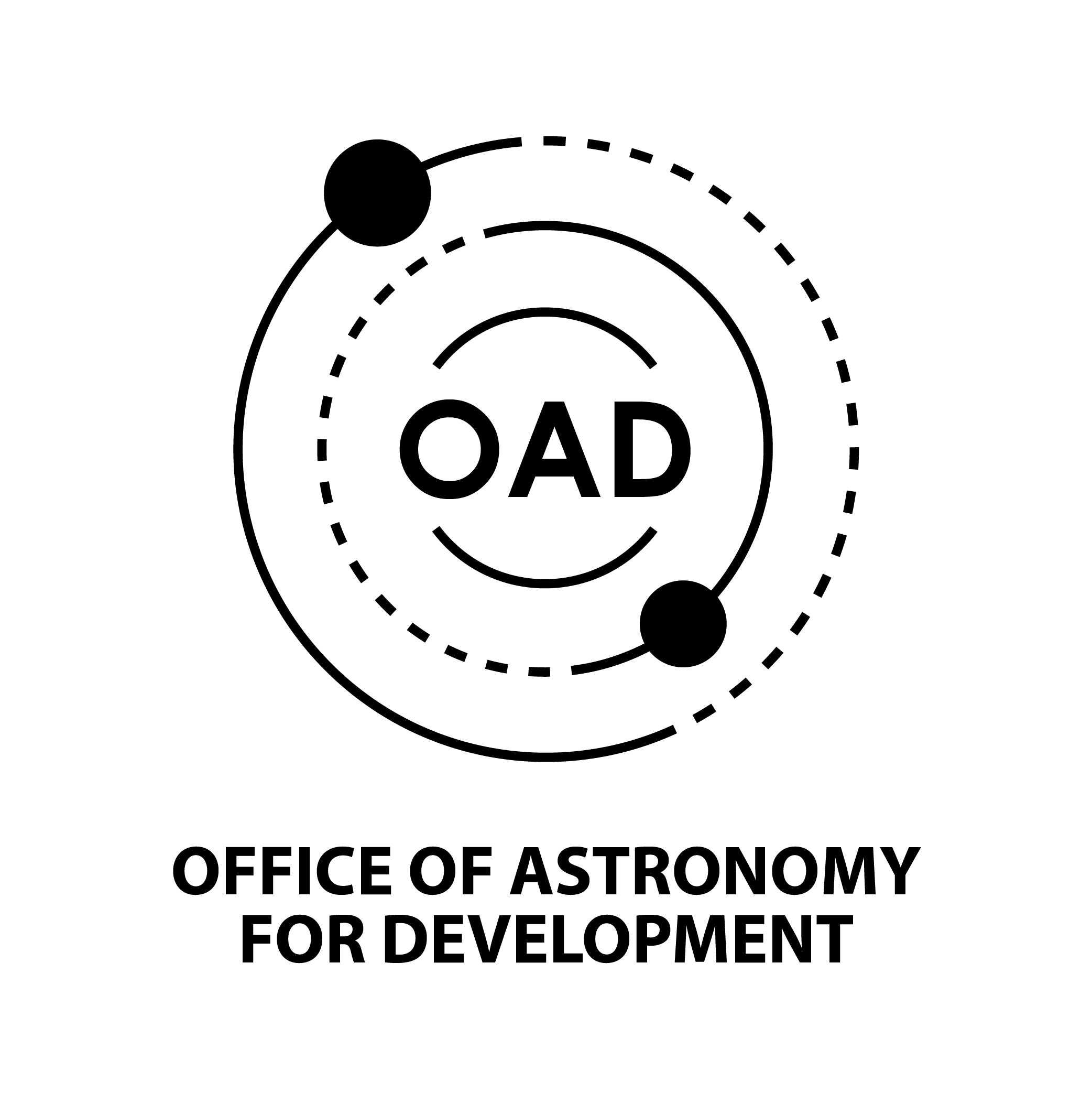This project is the fruit of several years of collaboration between the Inter-University Institute for Data Intensive Astronomy (IDIA), a South African University partnership developing cloud computing for scientific research, DARA Big Data funded by the UK’s Newton Fund, and the International Astronomical Union’s Office of Astronomy for Development (OAD). The project has now evolved into a model that leverages short-term programs, like hackathons, to address the rapid changes our world is experiencing. More organizations, such as the African Astronomical Society (AfAS) and the South African Astronomical Observatory (SAAO), have joined and will continue to grow the legacy of the initial partnership.
The mission of Hack4dev is to establish a mechanism that boosts developmental impact and data analytics. Achieved through hosting worldwide micro-programs designed to ‘hack’ the learning of skills quickly, we empower the public to organise their own events using our resources and established programs.
The Figure below presents the Hack4dev framework for the mission statement, starting with alumni notification about the Hack4dev call. This encourages individuals from the same institution to form a team and apply, choosing their desired program or ‘micro-programme.’ A subcommittee from the Hack4Dev operations team selects the teams, which then receive training through the Trainer’s Hackathon step, enabling them to organise hackathons at their institutions during the Regionals Hackathons step. Following the event, survey data is used to inform the public, academics, and policymakers about the outcomes and to enhance the micro-programme through a feedback loop.
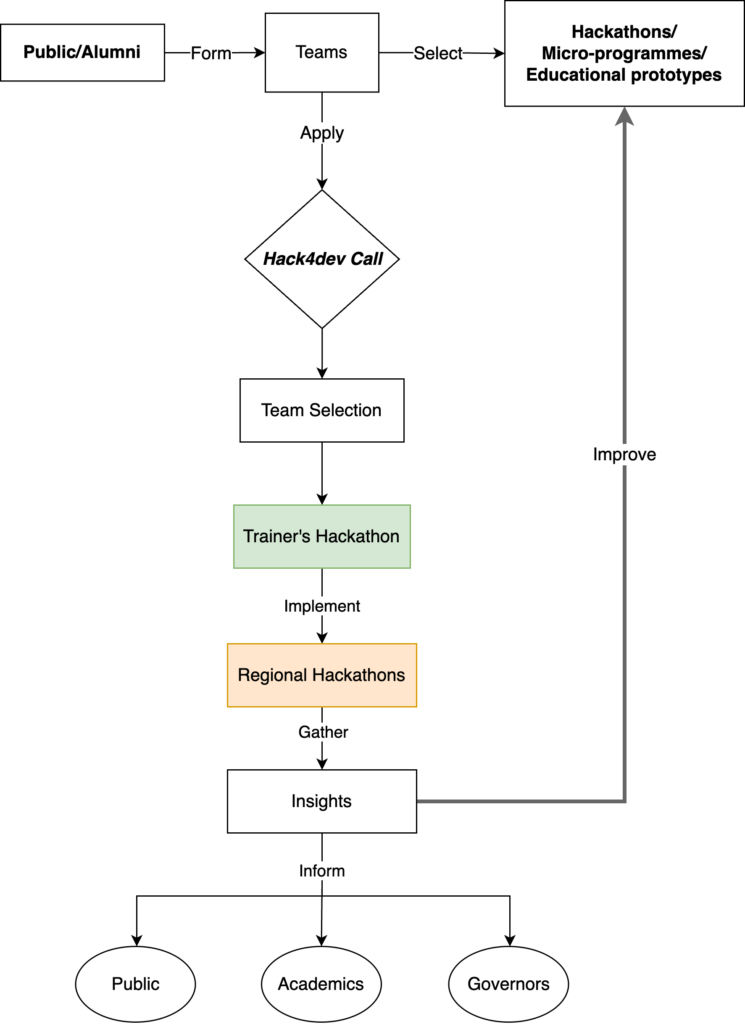
The framework highlights the cyclical nature of the vision statement: broader impact generates significant data, which, through data analysis, produces actionable insights. These insights then foster greater impact and enhance awareness.
The above core vision has the following objectives:
- Enhance inter-organisational collaboration
- Sustainable Hackathons
- Community-Centric Approach
- An Agile Testing Process through Data Analytics
- A Wider and more Diverse Range of Participation
1. Enhance inter-organisational collaboration
Hack4dev’s vision for global hackathon events focuses on collaborative partnerships, ensuring no single institution is favoured. We distinguish between two types of organisations: partner organisations within Hack4dev and funding organisations. Partner organisations are responsible for implementing the Hack4dev vision, developing and maintaining resources, and providing funding to host hackathons in their regions or globally. Meanwhile, funding institutions can offer support either for specific hackathon programs in particular regions or for Hack4dev as a whole.
Hack4dev’s approach builds on the IAU Office of Astronomy for Development (OAD) model by providing more than just funding; it supplies all the necessary resources for projects we develop to empower communities and ensure sustainability. This strategy ensures a well-rounded support for our initiatives, facilitating their successful implementation.
2. Sustainable Hackathons
To facilitate the smooth rollout of hackathon events, they must be: a) easy to implement, b) cost-effective, and c) brief in duration. Overlooking these characteristics can hinder organising teams from successfully implementing hackathons in their communities and institutions. Additionally, high-cost hackathons exert undue pressure on funding and can restrict the reach of potential beneficiaries. Realising this requires developing resources and instruction guides that adhere to these essential characteristics.
Eslam Hussein’s paper on the methodology for implementing such events can be found at the following link: [link].
3. Community-Centric Approach
This approach is crucial for empowering communities and ensuring sustainability, which is achieved by a) incorporating participant feedback through designed surveys to assess the impact of hackathons and refine their structure and b) enabling communities to organise their own hackathons.
Two key components must be established for effective strategy implementation: a) Support from academia to create a comprehensive feedback form for improving Hack4dev’s activities, and b) A stakeholder engagement strategy that facilitates volunteer engagement through Hack4dev’s trainer calls or participation in regional hackathons. This approach also involves gathering feedback from volunteers, allowing for ongoing enhancement of the activities provided.
4. An Agile Testing Process Through Data Analytics
Academic institutions increasingly adopt a data-centric approach, using insights to enhance their strategies. However, these insights are often specific to individual institutions and not widely generalizable. Furthermore, there is a delay in adopting new interventions (like chatGPT) within these institutions, hindering the timely testing of those innovations. Conversely, hackathons (educational prototypes, “micro-programmes”) offer greater flexibility in embracing new interventions and can be deployed globally. This makes them an effective platform for testing new interventions and generating insights on a global scale. This step follows naturally from the implementation of Objectives 1-3. The flowchart in Figure 2 outlines the process for implementing hackathon events globally.
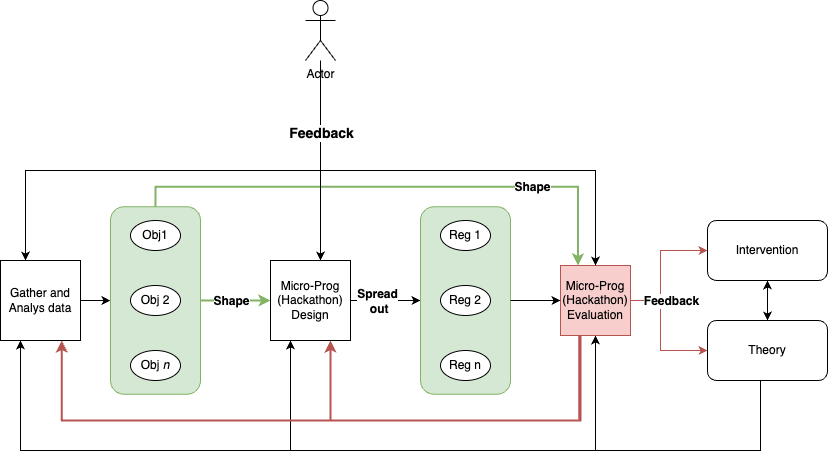
This objective holds particular significance in the academic field, especially for social science, which often faces challenges in data collection. IDIA’s cloud computing system, called ilifu, will analyse all collected data. More details can be found in the following link.
3. 5. A Wider and More Diverse Range of Participation
Utilising hackathons’ adaptability across multiple fields, we aim to introduce more hackathon programmes to reach a wider and more diverse audience. These programmes capitalise on the existing skills of Hack4dev partners and their proven ability to deliver projects successfully.


